 "the power to define is the power to control."
"the power to define is the power to control."We don't even know what we are talking about but people are at greater risk of harm when we confuse the relation between practice and knowing because:
 "the power to define is the power to control."
"the power to define is the power to control."
Carroll Pursell, White Heat, p. 121. Chapter five,
What do you see in this photograph?
Shades of Chapter four?
"The combination of a computer controlled temperature probe in the hot oil, . . .make every order the same. . . . they feel disposable because they are."
Science | meaning changed | argument | evidence | steam | Pursell's point | Eberhart's technology | on science | materials | what science is.
Science is informed by technology, not the other way around, but by referring to science and technology we alter their relationship by inverting the order in which the words originated."
The water wheel was replaced by the steam engine from 1700 to 1900.
Does this matter?
Historically, yes it does because this change in meaning implies an important alteration in the 17th century and another profound shift in the 18th and 19th centuries that we must take into account in the history of material culture.
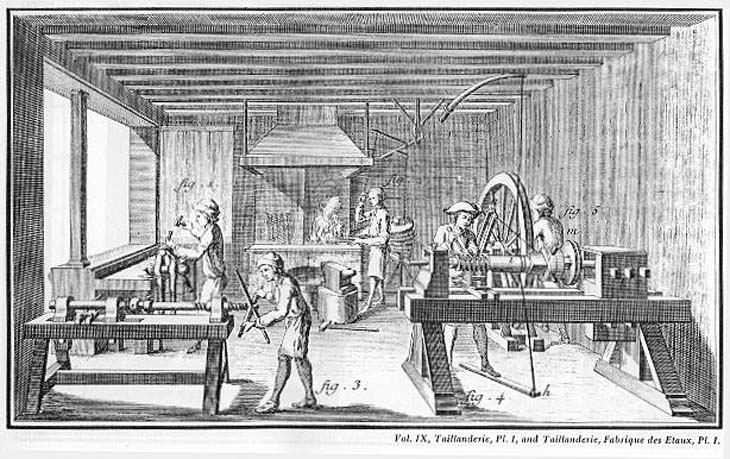
The manufacture of screws and the standardization that required was a key element in later mechanization.
Technology is a costly, powerful, and pervasive, representative part of our material culture. The accidental experiment's outcome and further exaptation of the steam engine ushered in the automated world we now take for granted.
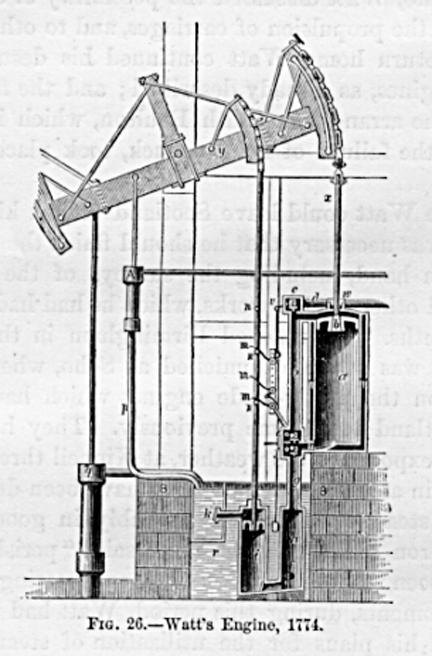
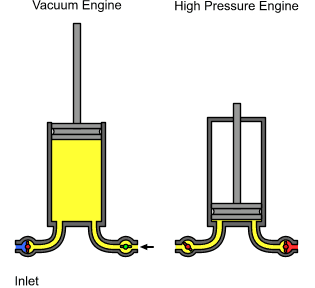
| Pursell wants us to know that the club of practitioners predates the club of engineers and these precede the emergence of scientists in the mid-19th century. | ||||
| Technological practice and techniques gave rise to scientific knowledge of both heat (thermodynamics) and the harnessing of electricity for practical means in telegraphs and motors. | ||||
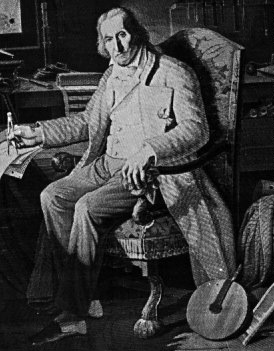
|

|
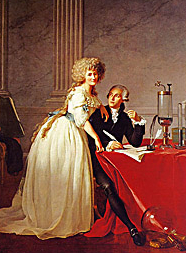
|

|
|
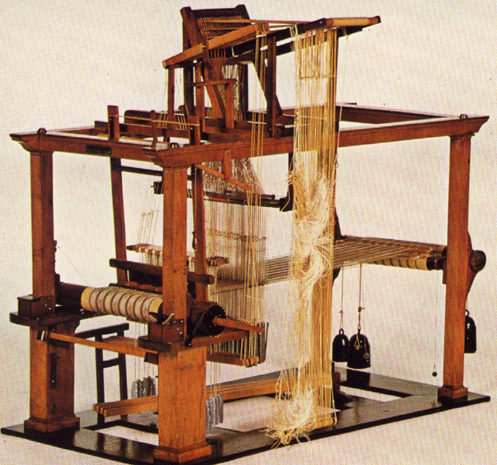 |
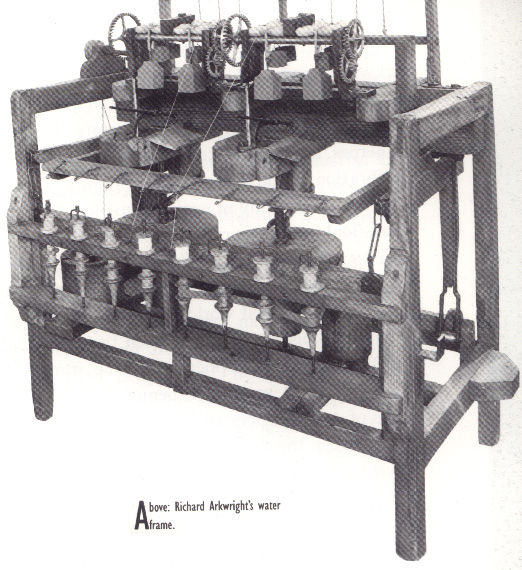 |
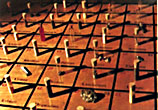 |
||
| Rationalizing the world | ||||
|
||||
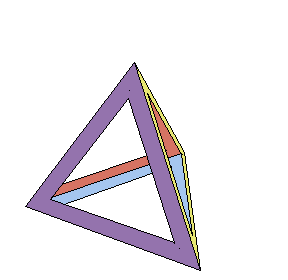
|
||||
Steam engines transformed labor and landscape because they were so versatile in a variety of applications.
 Electrons carry charge from place to place called a current.
Electrons carry charge from place to place called a current.
Science then became a means to reveal the unseen, as chemistry and physics began to study electromagnetism to standardize, measure, and predict the behavior of electrons. In so doing scientists discovered radiation and the inability (uncertainty principle) to treat electrons like tiny planets orbiting about a nuclear sun. The more evidence that was discovered the unseen world became less and less like the world we experience.
Changes in meaning | Argument | Evidence
"Part of the problem is that words change meaning through time, and even at any one time may have different meanings for different peoples. Definitions cannot be the starting place for historical study, but must be part of that study. The words 'science' and 'technology', for example, fall easily upon our ears in the late twentieth century, but two centuries ago would have had little of their modern meanings."
The Oxford English Dictionary lists for science a 1660 usage referring to 'a craft trade or occupation requiring a trained skill'. The word Technology', on the other hand, is listed as first occurring in 1615, and meaning ' a discourse or treatise on an art or arts'.
Leonardo's sketches of gears, gearing and notes on the functions of the apparatus are examples of the primacy of technology drawn well before the "supremacy of science" emerged after Hooke and Newton in the 1680s.
Neither word reached its current meaning much before the mid-nineteenth century."
He concludes:
"Before that, 'technology' would probably have been referred to as 'the useful arts', and 'science' as either 'natural history' or 'natural philosophy'."
Carroll Pursell, White Heat: People and Technology, (1994), pp. 121-122.
Changes in meaning | Argument | Evidence
Argument:
Evidence
The Oxford English Dictionary is the source to use for all definitions.
The word 'technology', on the other hand, , is listed as first occurring in 1615, and meaning a 'discourse or treatise on an art or arts'.
lists for 'science' a 1660 usage referring to 'a craft trade or occupation requiring a trained skill'.
Summation
"Neither word reached its current meaning much before the mid-nineteenth century."
Changes in meaning | Argument | Evidence
Rhetorically speaking, any argument must be based on evidence.
the evidence must be attributed to some reliable source and confirmed, the summation then guides the listener, reader or audience to the next point.
| Steps in Pursell's analysis: | Are examples of a discourse; | The content of the discourse: |
|
argument |
our assumptions are incorrect |
the use of the word technology is really older than science |
|
Clearly presented |
science is informed by technology |
Two affiliated words |
| evidence |
technology vs. science |
etymology |
|
Must be have a reliable source |
Pursell |
1615, "arts" |
|
Confirmed by a source or sources |
Oxford English Dictionary |
1660, "skilled craft" |
| summation |
the importance of the past. |
the scope of tools we use. |
|
explains to readers or audience the points
raised |
history reveals a paradox |
Knowing depends on what we can not know. |
|
Guides readers or audience the following
point |
the confusion still leads us to mistakes
in judgment. |
The user is as important as the designer or inventor. |
Changes in meaning | Argument | Evidence
Writing | writing from texts | how to approach writing | writing papers | writing & world views